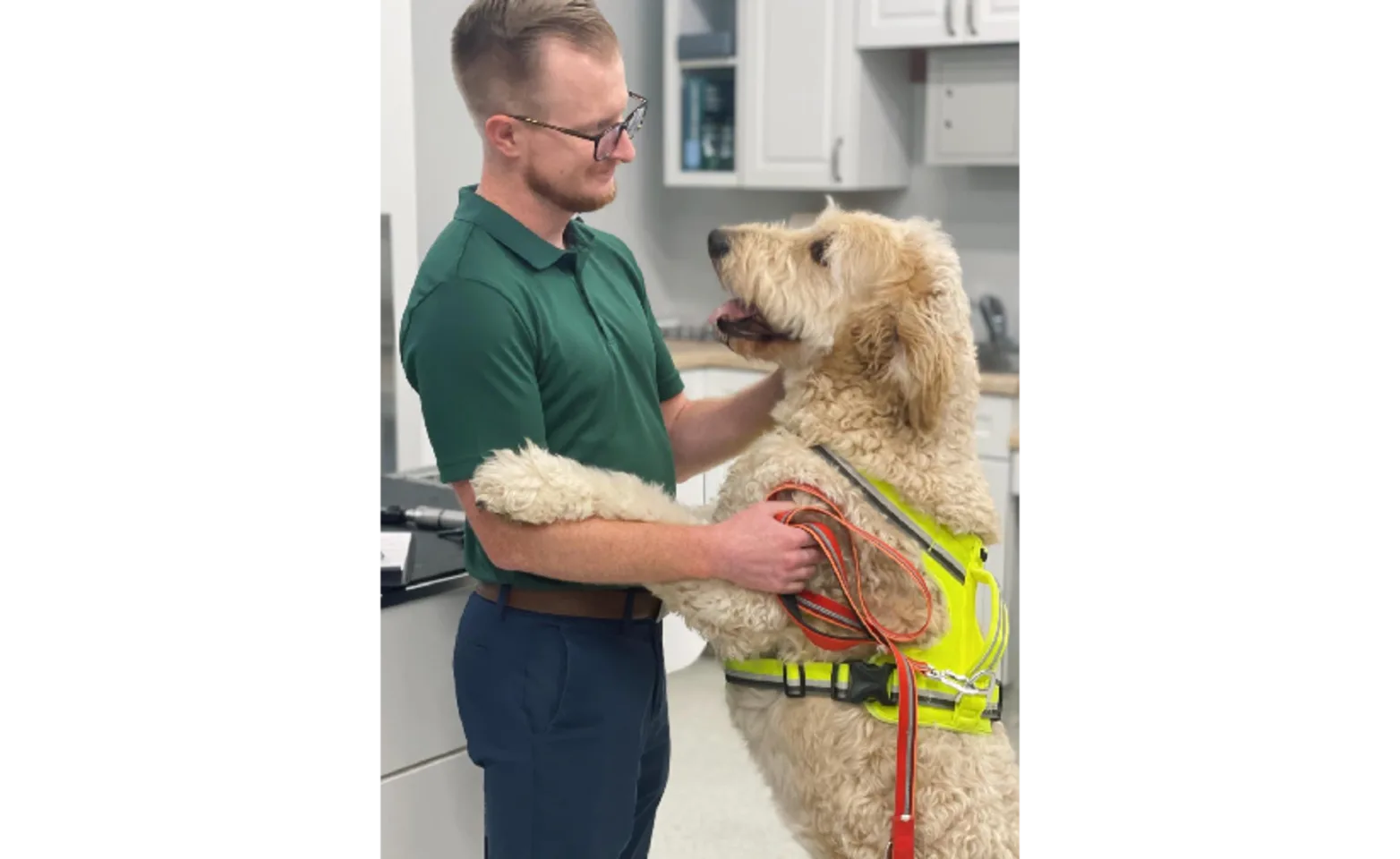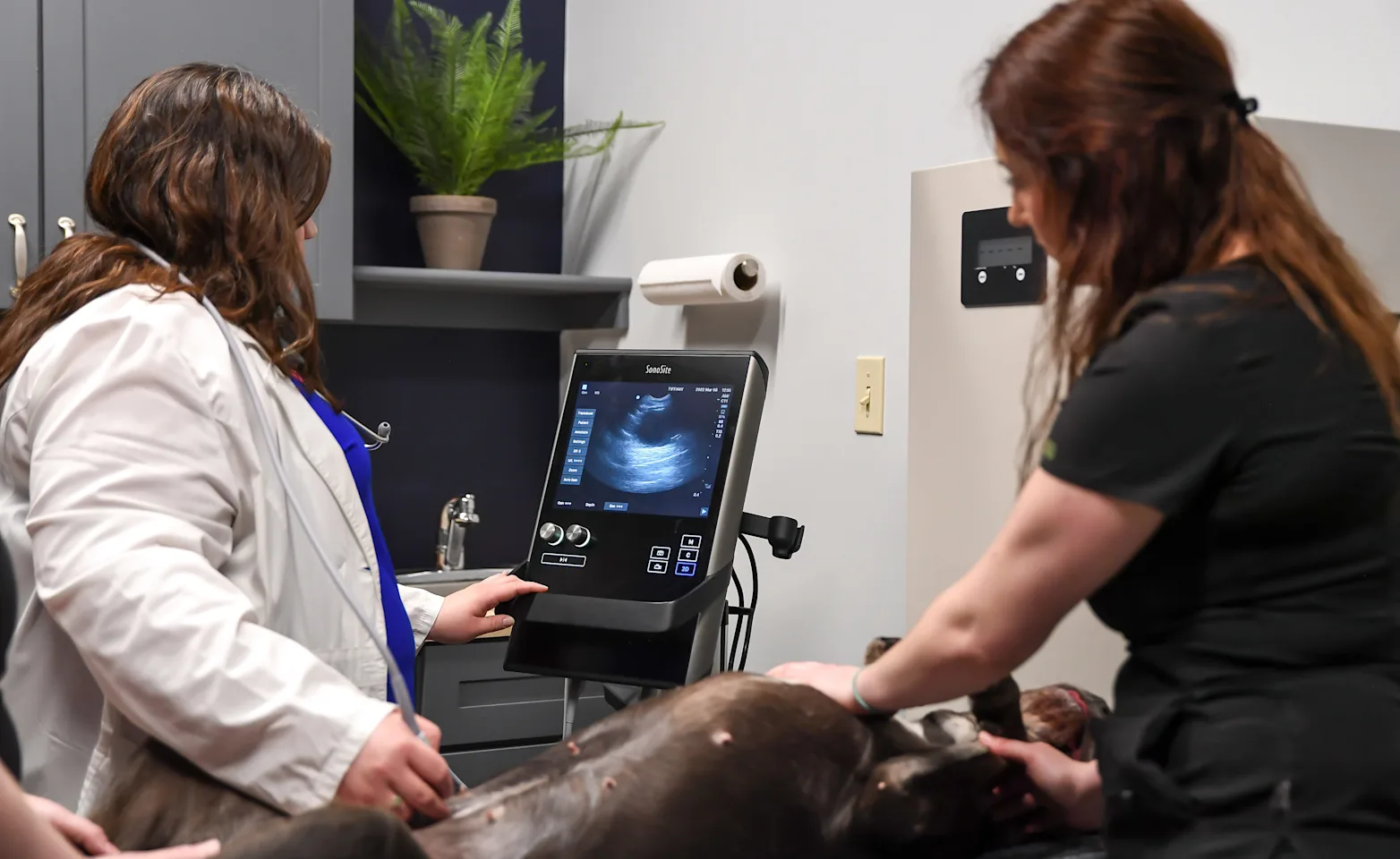Eagle Animal Hospital
Ultrasound Benefits
We believe that your pet’s health, wellness, and well-being are of the utmost importance. As your dedicated team of veterinarians, we want to help them live long, healthy, happy lives while enjoying the best quality of life possible. But just like us humans, our precious pets are at risk of health conditions, illnesses, and injuries that can cause pain and discomfort, reducing their overall quality of life.
Fortunately, your friends at Eagle Animal Hospital in Riverside rely on cutting-edge technology and advanced imaging tools to care for your beloved pets. These techniques allow for quick and accurate diagnoses, rapid detection of health issues, and advanced monitoring systems that can help us treat various issues and prevent the onset of health conditions common to our canine and feline family members such as. Read below for a list of benefits ultrasounds may offer your pet and family.
Noninvasive Diagnostic Imaging Procedure
Painless With Little-To-No Discomfort for Your Pet
Reveals An In-Depth Picture of Your Pet’s Organs
Enhances Early Detection and Prevention Techniques
Improves Accuracy With Diagnoses
Detects Abnormalities In the Abdomen
Helps Identify Obstructions In the Gastrointestinal Tract
Enhances Cardiovascular Evaluations
Efficient Monitoring Tool During Pet Pregnancies
Safe for Pets of All Ages

What's an ultrasound?
Pet ultrasound is a noninvasive diagnostic approach for investigating or monitoring an area of concern in your pet’s body. Similar to diagnostic imaging for humans, ultrasound technology involves directing a narrow beam of high-frequency sound waves into a specific location in the body. As the sound waves penetrate the tissue being examined, the tissue either transmits, reflects, or absorbs these waves. When waves are reflected, they return as echoes, which are then converted into a two-dimensional image that your vet can instantly view and study.

Why would my pet need an ultrasound?
While ultrasound is a highly effective tool for evaluating heart conditions and abdominal issues, this test may help locate cysts, tumors, and abnormal growths. Your veterinarian may also recommend a pet ultrasound in combination with another diagnostic study such as an x-ray. What’s more, if your pet is scheduled for a surgical procedure, your vet may recommend an ultrasound prior to or following their surgery.

Ultrasound studies are often recommended when your veterinarian:
Evaluates your pet’s organs
Evaluates your pet’s heart (echocardiogram)
Finds abnormalities in blood work or on x-rays
Suspects obstructions in the GI tract
Monitors a pregnancy
Tracks the process/progress of a disease, illness, or injury
